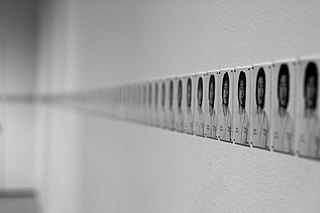A Quote by Richard Dawkins
Humans are just a very, very small part of the panoply of life, and it is arguable that in a certain sense, humans have emancipated themselves from Darwinian selection.
Related Quotes
Most educated people are aware that we are the outcome of nearly 4 billion years of Darwinian selection, but many tend to think that humans are somehow the culmination. Our sun, however, is less than halfway through its lifespan. It will not be humans who watch the sun’s demise, 6 billion years from now. Any creatures that then exist will be as different from us as we are from bacteria or amoebae.
The positive evidence for Darwinism is confined to small-scale evolutionary changes like insects developing insecticide resistance....Evidence like that for insecticide resistance confirms the Darwinian selection mechanism for small-scale changes, but hardly warrants the grand extrapolation that Darwinists want. It is a huge leap going from insects developing insecticide resistance via the Darwinian mechanism of natural selection and random variation to the very emergence of insects in the first place by that same mechanism.
When humans act like animals, they become the most dangerous of animals to themselves and other humans, and this is because of another critical difference between humans and animals: Whereas animals are usually restrained by the limits of physical appetites, humans have mental appetites that can be far more gross and capacious than physical ones. Only humans squander and hoard, murder and pillage because of notions.
Many dogs can understand almost every word humans say, while humans seldom learn to recognize more than half a dozen barks, if that. And barks are only a small part of the dog language. A wagging tail can mean so many things. Humans know that it means a dog is pleased, but not what a dog is saying about his pleasedness.
Art and literature need extreme sociality to a degree that even dolphins don't have. We are the only large mammalian species that has such intense sociality. There are some small mammals that have become eusocial - the mole rats - but that's a different thing. Humans are able to understand one another at very high levels, to cooperate in very large groups. Humans depend on one another in ways that are an absolute precondition to sharing the kinds of information that makes narrative possible.
My eyes are constantly wide open to the extraordinary fact of existence. Not just human existence, but the existence of life and how this breathtakingly powerful process, which is natural selection, has managed to take the very simple facts of physics and chemistry and build them up to redwood trees and humans.
Gnomes live ten times faster than humans. They're harder to see than a high-speed mouse. That's one reason why most humans hardly ever see them. The other is that humans are very good at not seeing things they know aren't there. And, since sensible humans know that there are no such things as people four inches high, a gnome who doesn't want to be seen probably won't be seen... Wings.
Not only are animals unable to avail themselves of language to assert their own rights, but many fewer humans have a clear sense of kinship with animals than have a clear sense of kinship with other humans. Among beings with subjective states of awareness, animals are the untouchable caste, those whom human others would rather not acknowledge, let alone render assistance.
Very close cousins like humans and chimps have almost all their genes in common. Slightly less close cousins like humans and monkeys still have recognizably the same genes. You could carry on right on down to humans and bacteria, and you will find continuous compelling evidence for the hierarchical tree of cousinship.



































